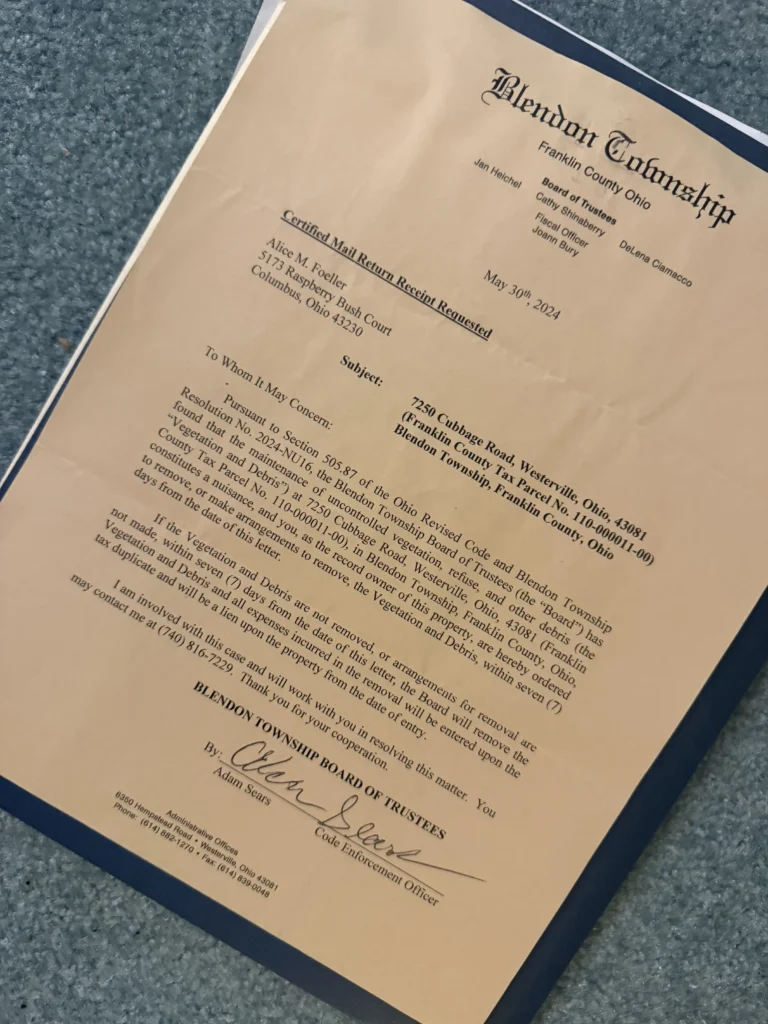Not everyone appreciates an experiment in seeing what will grow in the lawn, if left to its own devices.
Although we have good relationships with our neighbors, who were understanding about what we were doing, passersby and visitors were less pleased. In the early months, we wanted to see what would grow where before accidentally mowing under some valuable native plants, or trying to corral unknown bunches of wildflowers with fence posts. It looked a bit unkempt. The critters loved it. My dog loved it. But the township did not love it. People were calling and complaining, and they needed to do something.
Thus began our adventure with township code and the Ohio Revised Code. The attorneys we consulted were understanding, but we learned we had no due process. When a township issues a nuisance violation, they are authorized by the state to enter private land (or send contractors), clean up what they feel is a nuisance, and put a lien on the house to pay for it. In our case, they planned to send a crew of commercial mowers, indiscriminately mow everything down, and send the bill as property tax lien.
It took awhile to sort through the Ohio Revised Code and the International Property Maintenance Code to discover that we had no legal recourse.
That left the other route: Being charming and persuasive.
We brought a number of people to the next township trustee meeting to testify about the importance of pollinator pathways, native plants, etc. One particularly eloquent speaker told the trustees that the reason we don’t see fireflies anymore on summer nights is because everyone keeps their grass at 5 inches or shorter and sprays chemicals on their lawns. He said he drives past my house at least twice a day and always smiles at the grasses bending in the breeze and the wildflowers that are getting a start out by the road.
The first meeting was a great show and felt like a victory, except that public comment comes at the end after official action. So even if we were persuasive, nothing happened. The mowers could still show up any day.
We went to the next meeting, too, where I submitted a full three-year landscape plan and asked very nicely if they could withdraw the nuisance violation. I said that I had these great plans to make it more beautiful, but I was hesitant to invest in more plants and more landscaping if it might be mowed down anyday.
To my delight, the trustees deviated from their agenda and agreed to withdraw the nuisance.
They have since been very engaged in revising their code to encourage more native plantings and allow managed natural landscapes, even publishing an article in the township newsletter about the benefits of native gardening!

